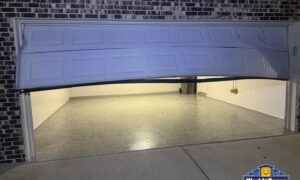Heating, ventilation, and air conditioning (HVAC) systems are crucial for maintaining a comfortable environment in homes and businesses. However, like any complex system, HVAC units can develop issues over time. Understanding these problems and knowing how to fix them can save time, money, and ensure your system runs efficiently. This article will explore some common HVAC problems and provide practical solutions to address them.
1. Insufficient Airflow
One of the most common HVAC problems is insufficient airflow. This issue often results from clogged air filters, which restrict the flow of air through the system. Dust, dirt, and debris can accumulate in the filters, reducing efficiency and leading to poor indoor air quality.Heating, ventilation, and air conditioning (HVAC) systems are crucial for maintaining a comfortable environment in homes and businesses. However, like any complex system, HVAC units can develop issues over time. According to California Realty Management Group, understanding these problems and knowing how to fix them can save time, money, and ensure your system runs efficiently. This article will explore some common HVAC problems and provide practical solutions to address them.
Solution: Regularly replace or clean your air filters, typically every 1-3 months, depending on usage and the type of filter. Ensure that your vents and registers are unobstructed by furniture or other items to allow proper airflow.
2. Uneven Heating or Cooling
Experiencing hot or cold spots in different areas of your home or building can be frustrating. Uneven heating or cooling is often caused by improper system sizing, ductwork issues, or a malfunctioning thermostat.
Solution: Check your thermostat settings to ensure they are correct and consider upgrading to a programmable thermostat for better control. Inspect your ductwork for leaks or blockages, and if your system is too large or small for your space, consult a professional to evaluate your options for resizing or zoning.
3. Short Cycling
Short cycling occurs when your HVAC system frequently turns on and off without completing a full cycle. This can be caused by an oversized system, a malfunctioning thermostat, or low refrigerant levels.
Solution: If your system is short cycling, check your thermostat placement and settings. Ensure it’s not near a heat source, such as a window or appliance, which could cause inaccurate readings. If the issue persists, have a professional inspect your system to determine if refrigerant levels are low or if the unit is improperly sized.
4. Refrigerant Leaks
Refrigerant is essential for cooling your home, and a leak can significantly impact your HVAC system’s performance. Low refrigerant levels can cause the system to work harder, leading to higher energy bills and potential system failure.
Solution: If you suspect a refrigerant leak, it’s crucial to call a professional technician to locate and repair the leak. Topping off the refrigerant is not a long-term solution; the leak must be fixed to prevent further issues.
5. Thermostat Malfunctions
A malfunctioning thermostat can lead to incorrect temperature readings, causing your HVAC system to operate inefficiently. Common issues include dead batteries, incorrect settings, or wiring problems.
Solution: Start by replacing the thermostat batteries and ensuring it’s set to the correct mode (heating or cooling). If the problem persists, check the wiring connections or consider upgrading to a more advanced thermostat model. If you’re unsure, consult a professional for proper diagnosis and repair.
6. Noisy Operation
Loud or unusual noises coming from your HVAC system can indicate various problems, such as loose components, debris in the unit, or a failing motor.
Solution: Turn off the system and inspect it for loose screws, bolts, or debris that may be causing the noise. Tighten any loose components and clear out any debris. If the noise continues, it could be a sign of a more serious issue, such as a failing motor or blower. In this case, it’s best to contact a professional technician.
7. High Energy Bills
If you notice a sudden spike in your energy bills, your HVAC system may be running inefficiently due to dirty filters, leaks, or outdated equipment.
Solution: Start by replacing your air filters and inspecting your ductwork for leaks. Ensure that your system is properly maintained and serviced regularly to keep it running efficiently. If your system is old, consider upgrading to a more energy-efficient model, which can significantly reduce your energy costs in the long run.
8. Water Leaks
Water leaks around your HVAC system can indicate a clogged drain line, frozen evaporator coils, or a malfunctioning condensate pump.
Solution: Check the drain line for clogs and clear any blockages to allow proper drainage. If the evaporator coils are frozen, turn off the system and let them thaw before restarting. If the problem continues, inspect the condensate pump or call a professional for further diagnosis.
9. Tripped Circuit Breakers
A tripped circuit breaker can cause your HVAC system to stop working. This can be due to an overloaded circuit, a short circuit, or a malfunctioning component.
Solution: Reset the circuit breaker and monitor your system. If the breaker trips again, it may indicate a more serious electrical issue. Check for any obvious signs of electrical problems, such as burnt wiring or a burning smell, and call a professional if you’re unsure.
10. Frozen Evaporator Coils
Frozen evaporator coils can prevent your HVAC system from cooling properly. This issue is often caused by restricted airflow, low refrigerant levels, or dirty coils.
Solution: Turn off the system and allow the coils to thaw completely. Once thawed, check the air filters and replace them if they are dirty. Ensure that your system has adequate refrigerant levels and that the coils are clean. If the coils freeze again, it’s best to have a professional inspect the system.
Conclusion
Maintaining your HVAC system is crucial for ensuring a comfortable indoor environment and avoiding costly repairs. By addressing these common problems and implementing the suggested solutions, you can keep your system running smoothly and efficiently. Regular maintenance and timely repairs are key to extending the lifespan of your HVAC system and preventing future issues. If you encounter a problem that you’re unable to fix yourself, don’t hesitate to call a professional technician for assistance.



































